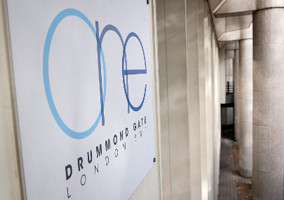Andrew Purkis questions whether the recommendation arising from the Charity Commission's trustee report that boards should be representative of the communities they serve will really work.
In response to the generally excellent report Taken on Trust, about the nature and competencies of Trustees, the Charity Commission has said that "boards are not reflective of the communities charities serve". NCVO has said: "Trustees are drawn from a narrow cross section of society, and as such boards rarely reflect the communities they serve". ACEVO likewise says: "civil society leaders - whether executive or non-executive - should be representative of the communities they operate in and the people they support".
I am fortunate enough to serve on the board of ActionAid International, the most wonderfully diverse board led by a formidable African woman as chair and a formidable Italian woman as vice chair, and I need no persuasion of the blessings of diversity. I am particularly shocked by the finding that in the Taken on Trust sample, men outnumber women as trustees (and as chairs and treasurers) by two to one. But we have to recognise the difference between a board’s having a diverse range of skills and experience and being representative. They are not the same.
Boards 'too reflective of patriarchy and class inequalities'
Part of the problem is that boards are all too reflective and representative of the deep seated patriarchy and class inequalities that unfortunately characterise their surrounding communities and society at large. I can understand why the Charity Commission et al are not proposing feminism and egalitarian reform as their chosen solutions, but let us not suppose that changing techniques of trustee recruitment and establishing registers are likely to make a huge dent in the weaknesses of society that are in turn reflected in charity boards.
Moreover, each charity exists for a specific cause. The board has a job to do to promote that particular cause as effectively as possible. So when we say they should be representative or reflective of the community they serve, we need to ask: "which community?" Remember that Taken on Trust tells us that a large majority of charities have 3-5 board members. They all exist for the public benefit, but 3-5 people can hardly be representative of the general public.
So of what should they be representative? Some charities have the purpose of conserving some sub species of nature, or promoting a specialist branch of research or learning, or advancing a particular religion. A board that is the best for doing that may be people who are interested in the relevant sub-species, or branch of learning, or constitute the worshipping community (sometimes very small, sometimes very patriarchal) from whom the trustees are drawn. If you like, they constitute a relevant community of enthusiasm for the purpose of those charities, but there is no way they can be reflective of the population of England and Wales nor of any geographical community. It may be that those who are saying trustees should be reflective of the communities they serve are thinking of a typical social care organisation delivering services in a particular place, but in fact the largest percentage of the charities analysed by Taken on Trust were in the category of "culture" (about 20 per cent of the whole) and the runner up with about 15 per cent was religion.
Requirement for necessary skill
Sometimes in tension with this is a different requirement for necessary skills, also highlighted with great acumen in Taken on Trust. The skills gap most often cited by trustees was legal skills. But if you are a board of 3-5 and you need to add legal skills, are you likely to choose anyone other than a qualified lawyer with time and inclination to help, perpetuating the predominance of people with higher educational qualifications and above average incomes? Some other skills gaps, not all, will tend to point in the same direction.
Indeed, skills versus representation is a familiar dilemma for many charities considering the future of their boards.
Difficulties in being 'representative'
As NCVO knows from its own history, trying to make boards "representative" has in the past caused huge headaches for itself and many other charities. Many is the medium to large charity that has laboured with an unwieldly and ineffective board because the board is trying vainly to be representative of all the geographical or thematic interests of the charity, or be "democratic". One governance review after another has concluded that the board should be relatively small and focus on the right mix of skills to run the charity.
For many medium or larger charities, the representative and reflective bit is far better achieved by a larger council or assembly, whether sovereign or just advisory, so that the board can be a smaller body that can make decisions with the right mix of skills. Please let us not forget all those hard-learned lessons by insisting that the board itself must be representative or reflective of the wider public. Public confidence and trust does not depend on a board being "representative". It depends on whether it has the right skills and experience to do its job well.
Now when considering what is the best mix of skills to enable the board to fulfil its functions, diversity is indeed key. An old boys' network will rarely if ever be the answer. Diversity of experience, skills and mindset, all geared to pursuing the particular cause of the charity, is a blessing on which far too many charities are losing out. More power to the elbows of all those following up Taken on Trust in this spirit. But please can we understand that this is not at all the same as saying that boards should try to be representative of society. Thereby hangs many a sad tale.
Related articles












